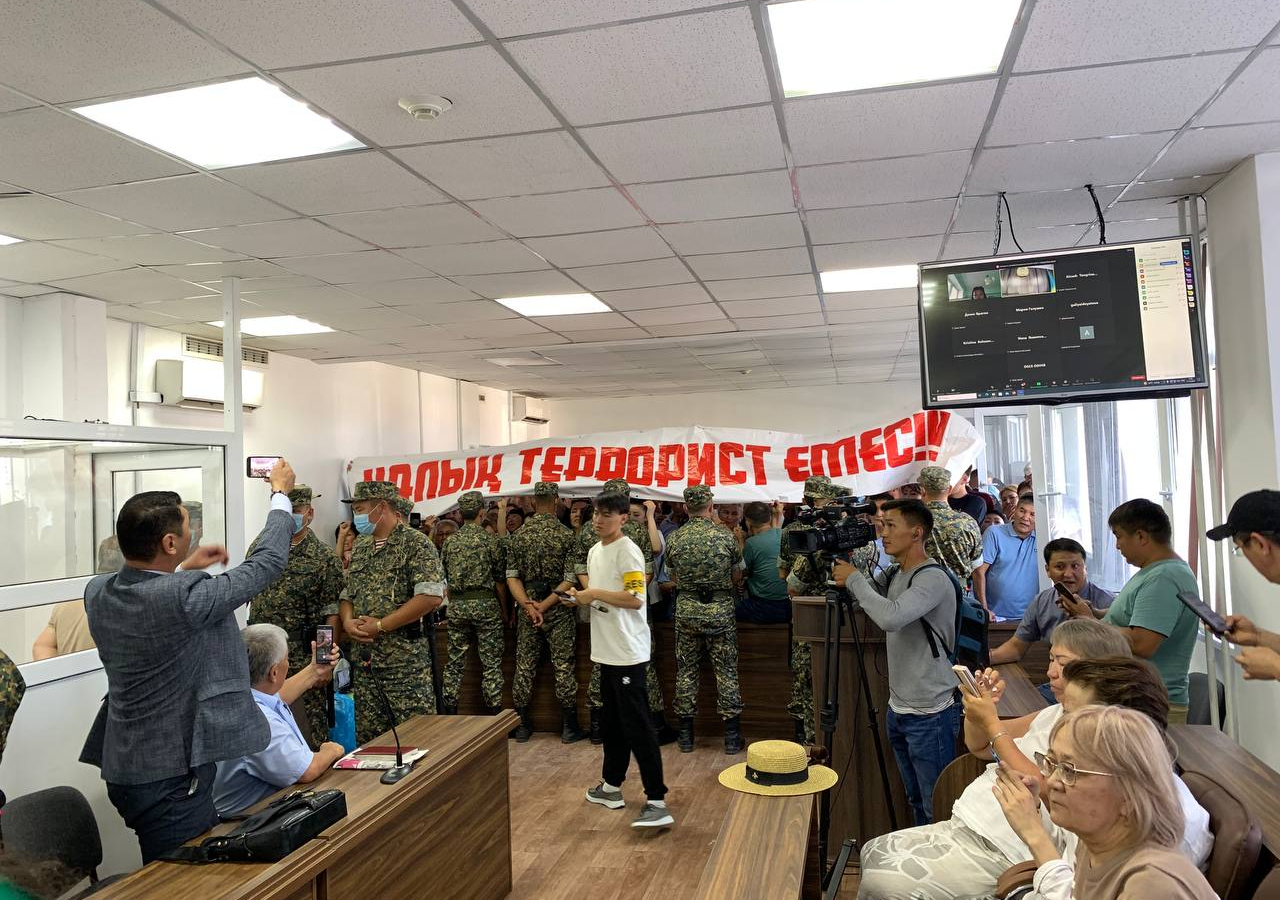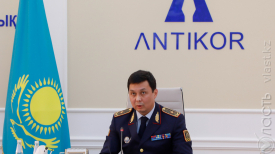- ВКонтакте
- РћРТвЂВВВВВВВВнокласснРСвЂВВВВВВВВРєРСвЂВВВВВВВВ
A military court in Almaty resumed hearings on the case of the murder of Aikorkem Medelkhan, a four-year-old who was shot while in her father’s car during Qandy Qantar (Kazakh for “Bloody January”, the violent repression of urban protests and riots that shook the country last year). At the July 13 hearing, however, the court barred Aikorkem’s father and the press from attending, citing the confidentiality of the trial. “They shot my daughter. Now, in order to hide their crimes, they hold the trial behind closed doors,” Aidos Meldekhan said.
All five defendants in the so-called “airport hijacking” trial were sentenced on July 11 to prison terms from four to eight years. Journalist Aigerim Tleuzhan and other civic activists had been accused of “violently seizing the airport” during Qandy Qantar. Dozens of people protested the verdict at a court in Almaty and the defendants said they will continue to fight for justice and will appeal the verdict. On July 14, civic activist Beszhan Toleubekuly was detained for 15 days for having called for a rally against the verdict in the aftermath of the court decision.
The Central Bank said on July 12 it could consider lowering interest rates on the back of slowing inflation. In 2022, in the aftermath of the Bloody January events and Russia’s war of aggression in Ukraine, inflation reached long-forgotten heights, around 20%. In June, annual inflation was below 15%, prompting the proposed policy change. The consumer price index, however, continues to grow, hitting the pockets of residents across the country.
On July 12, the ministry of economy said the impact of utility tariff increases will be “moderate”. Since July 1, tariffs across the country were increased by 10-30%. The government said the price hike is necessary to allow for the necessary investment in maintenance and renovation.
Scheduled maintenance work at the Shymkent refinery and the emergency situation that shut down the Atyrau refinery for days could lead to a shortage of gasoline, the energy ministry said on July 12. After a shutdown of four days, the Atyrau refinery resumed work on July 7.
In connection with last week’s breakdowns, on July 13, the government reprimanded vice minister of energy Zhandos Nurmagambetov for a weak management of the Western energy hub, and the head of state-owned Kazmunaigas Magzum Mirzagaliyev for failing to ensure safe and stable operations at the Atyrau refinery.
The Antimonopoly Agency published a report on July 13 that showed how the gasoline market was concentrated into the hands of just two companies. Kazmunaigas and Petrosun (since July 2022 co-owned by Kazmunaigas and China’s CNPC) control the lion’s share of the wholesale market, the agency said.
From July 21, the Big Almaty Ring Road (BAKAD in its Russian acronym) will become a toll road. The 66-kilometer highway was financed through a loan by the European Bank for Reconstruction and Development. The EBRD, together with other lenders, raised $585 million to build the new road and the consortium of companies signed a 20-year concession contract to manage the highway.
Traveling on Kazakhstan’s intercity roads could also become more expensive, as a committee of the ministry of industrial development proposed to increase toll payments at 11 state highway posts by up to 20% on July 13.
Prime minister Alikhan Smailov signed a decree that allows Kazakhstan’s banks to export Russian rubles reserves. Under a previous decree from March 2022, the export of rubles was effectively banned, in an effort to avoid falling under the sanctions regime imposed by Western countries after Russia’s aggression against Ukraine.
Поддержите журналистику, которой доверяют.








